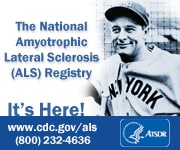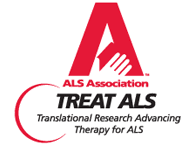"If ALS were a terrorist group taking thousands of lives each year, this country would throw people and technology and money at it until we had won". It's like a terrorist in our midst, going strong. (Marilyn Adams, USAToday, June 30, 2004)
On September 11, 2001, the United States experienced the worst terrorist attack in our history. That day is planted in our minds forever and is a crisis we will not soon forget. As the nation dealt with this tragedy, it would face a second wave in the form of a biological attack. The suspicion of anthrax in Florida would lead to the discovery that deadly spores had been distributed through the postal system, causing 22 cases of anthrax, including 5 deaths, and for a while changing the protocal of public health.
Six years later America's homeland federal defense program named Project BioShield is still very much alive. BioShield was awarded $5.6 billion in funding in 2004 to develop drugs and vaccines to protect Americans against biological and chemical attacks. It constitutes the largest federal effort ever to protect civilians from an anthrax attack. Anthrax vaccines destined for wide civilian use despite uncertainty about their effectiveness and the ongoing debate about potential health problems.
All this funding for a fading threat using a questionable vaccine that was fast tracked through the FDA? This one instance may have changed public health awareness for a short period but has left similar health threats forgotten. ALS is not fading and will soon be the new public health concern that is a real terrorist threat. ALS is the threat that has been unnoticed for 134 years, has a profound amount of suffering and deaths world wide. Is BioShield a practicable program or more money for nothing?
Thursday, January 31, 2008
Subscribe to:
Post Comments (Atom)










1 comment:
WASHINGTON 8/1/2008 — The seven-year investigation into the anthrax attacks that traumatized and baffled the nation just weeks after the Sept. 11 attacks has taken a stunning new turn with the apparent suicide of a scientist who was the prime suspect in the case.
With investigators close to filing charges against him, the scientist — Bruce E. Ivins, 62 apparently took his own life with a prescription painkiller, Tylenol mixed with codeine. He died Tuesday at a hospital in Frederick, Md., about an hour’s drive north of Washington.
Post a Comment